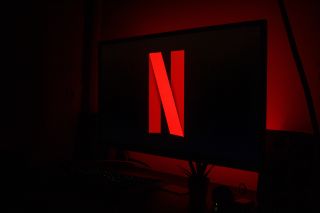Media
Netflix as a Child of Its Times
Entertainment powerhouse Netflix is seen as a fruit of the rise of the "self."
Posted January 5, 2024 Reviewed by Ray Parker
Key points
- Psychologists and philosophers say the "self" has become prominent in the modern age.
- On-demand entertainment reflects the increased importance of the self.
- Netflix caters to selves and societies and has embodied some of the values of the Enlightenment.

Part 2 in a series.
The idea of entertainment being “on-demand” is itself worth unpacking. Within this term is a centering of the individual and their wants. Entertainment has only recently begun being “on-demand;” traditionally, entertainment was heavily communal and socially-orientated.
For “on-demand” to materialize, two realities had to come to pass. Firstly, technology had to reach a level that could facilitate this. Secondly, and of our concern here, the individual had to be deemed important enough to warrant this function. The individual was not always seen as important as today, according to the likes of philosopher Charles Taylor and psychologist Roy Baumeister. These tellings of the rise of the self are concerned primarily with the Western world, within which Netflix was born, or to use Taylor’s related concept term, in the “North Atlantic.”
Taylor believes secularization had a deep relationship with the rise of the self. Charting a path back to the Roman Christian thinker Saint Augustine, Taylor details an interesting trajectory wherein human beings increasingly turn inward. For Augustine, this was a turning inward to find God. Despite being a deeply religious turn, Taylor believes this laid the foundations for more individualized turning inwards that would follow.
More than a millennium later, René Descartes also called for a turn inward. While it was also a turn colored by monotheism, Descartes believed in the need for the self to attain an assured consciousness of the self. Michel de Montaigne, writing around the same time as Descartes, believed in the importance of discovering one’s true self.
When John Locke fueled the Enlightenment a little later, his idea of the "punctual self" was rooted in the philosophy of self-improvement. Fast forward to the modern age, and the championing of the self reaches new pinnacles with concepts such as the “self-actualization” of Abraham Maslow and the “person-centered psychology” of Carl Rogers.
Fast forward a little more, and the values of the Enlightenment that Locke had contributed to are witnessed within Netflix’s cultural commitments—such as aspiring to openness, curiosity, and inclusivity. Of most relevance, the prominence of the individual is also considered among the values of the Enlightenment.
These ideas that give prominence to the self seem distinctly unradical today. However, Baumeister’s historical research on the self helps us see that they would have appeared radical for most of (Western) history. In his paper, How the Self Became a Problem, he argues that until around the Middle Ages, the Western world was apparently not concerned with individuals.
He relies on literary work, religious teachings, and even architecture to back this claim. In his telling, classical literary works were bereft of individual weight, while texts such as biographies and autobiographies were almost nonexistent for much of Western history. In terms of religious teachings, he finds evidence that salvation was seen exclusively in terms of collective salvation.
Even buildings themselves—brick and mortar and deep material—were designed in such a way as to cater to the collective, with little regard for individuals. As the Middle Ages give way to the modern, buildings begin respecting individuals and their need for privacy more.
It is important to note other tellings of the rise of self place different emphases. Will Storr’s Selfie instead focuses on neoliberalism and the thought of those such as Ayn Rand and Alan Greenspan. These narrations are typically not mutually exclusive, though, and in fact, support each other at many junctures.
One of the very reasons for the emergence of psychology was the decline of religion. Both Baumeister and Taylor appear to agree on that. In Taylor’s telling, secularization leads to phenomena such as “the great disembedding,” wherein society ceases to be primarily a communal structure under the authority of the church and begins to be seen as made up of individuals: a process of atomization.
In Baumeister’s telling, religion once answered great questions for the human being, such as who to love, and what to do with one’s life. As religion retreats, these answers dissolve, and the individual must struggle to find answers that are true to the self.
So, where does entertainment fit into the picture?
Just as the individual has gained prominence, while the social has diminished, these trends are also visible within entertainment and the way it is consumed.

Gathering together in a public space to watch human beings acting in the flesh, rubbing shoulders, and sharing emotional moments with others carried many layers of sociality and communalism. There was a certain degree of symbiosis wherein the crowd can, in theory, influence the performers, and often did. This lightens with the progression of private entertainment, exclusively performed within private property. A human element of this is further diminished with the proliferation of cinema, albeit at the performer’s end.
With cinema, the delivery is entirely unilateral, too, unchanging to the whims and howls of the audience. The performer’s end is entirely inert, with the social element of the audience further diminished with the spreading of private home entertainment such as videocassette recorder (VCR), and then digital video disc (DVD). The act of purchasing VCRs and DVDs, or renting them, carried a little element of socializing within them in interactions with shop staff.
Arriving where we are today, over-the-top (OTT) streaming platforms, such as Netflix, removed any semblance of necessary sociality within the process. Yes, individuals can consume content together, but it is no longer a necessity. The individual can garner information on millions of titles without having to speak to or hear another and can purchase their catalog in complete isolation.
Despite these trends, it would be myopic to think we are not still beholden to social influence. We are still influenced by what others recommend, what they are watching, and even what they want to watch with us. It would be premature to say that on-demand viewing will lead exclusively to individuals consuming content alone. One study from NScreen Media reported more individuals actually co-view (i.e., watched with another) when watching on-demand content than when watching traditional TV.
Netflix was born in time and space and was fundamentally shaped by the values of that time and that space.
Read Part 1 of the series.




